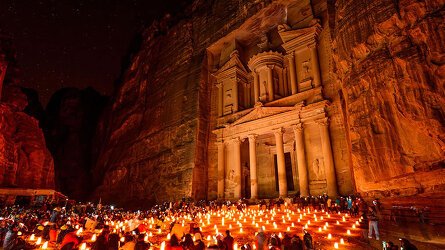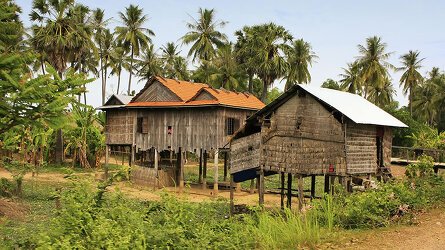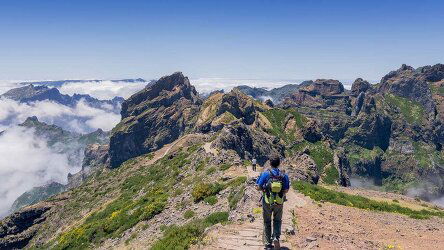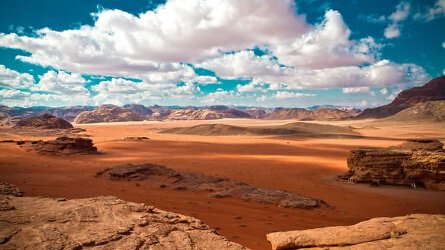Explore!
Featured Tours View all
Popular Destinations View all Explore the following regions on one of 356 tours with Explore

39 Tours
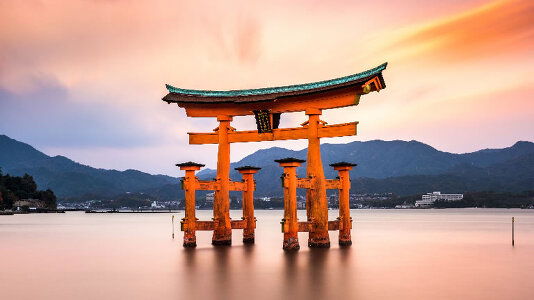
108 Tours
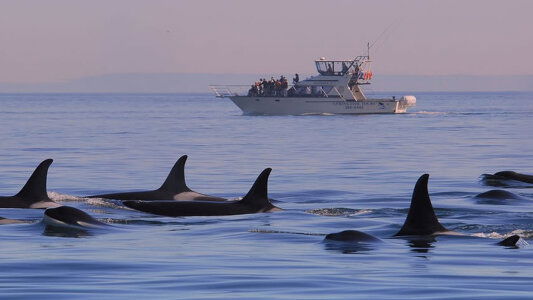
4 Tours
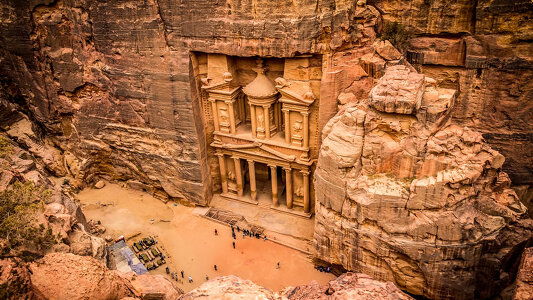
11 Tours
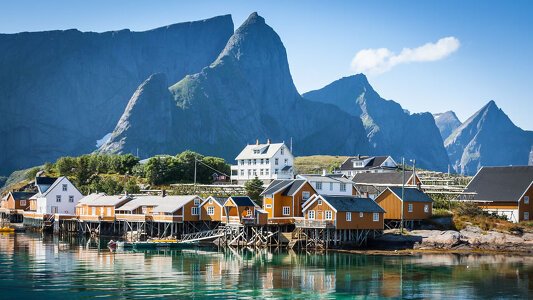
126 Tours
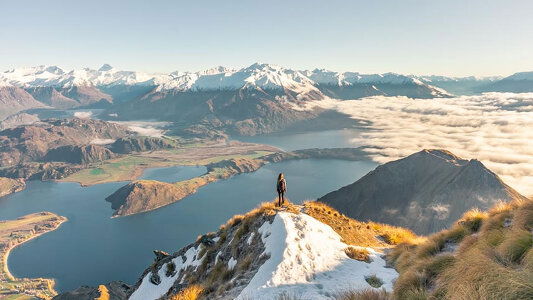
2 Tours
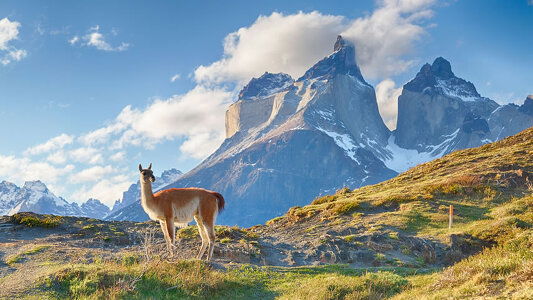
45 Tours
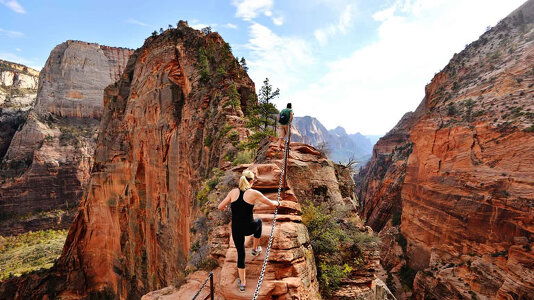
5 Tours
Travel Styles View all Popular ways to travel with Explore!
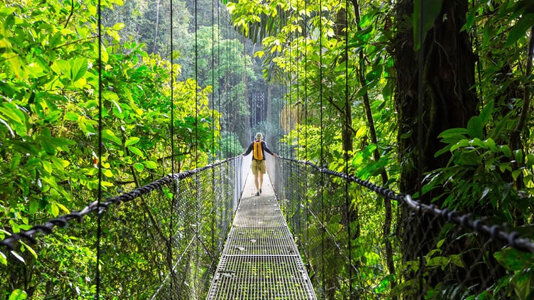
Join an Explore discovery tour and experience ancient and contemporary cultures, inspiring landscapes, iconic sites and hidden gems.
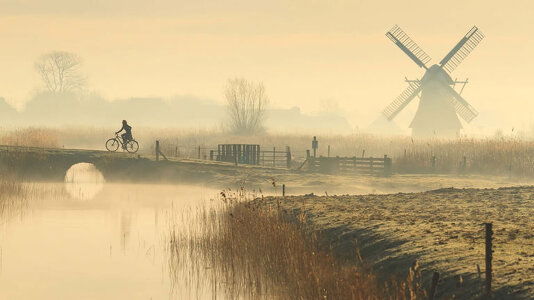
From the pleasure rider to the hardcore cyclist, there is a cycling tour that explores every corner of the globe.
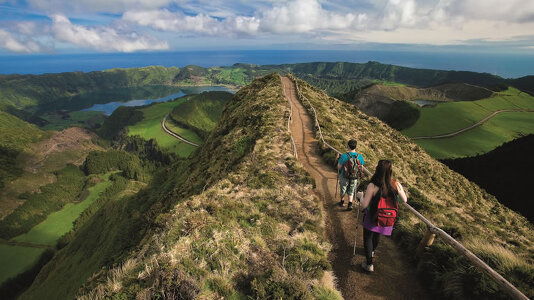
Choose from easy walking holidays to challenging treks. Feel the land underfoot and the wind in your hair as you cut a path through local cultures.
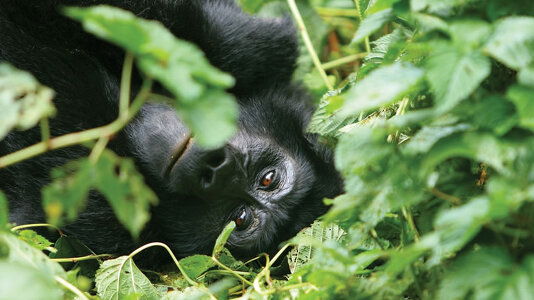
The Big 5 in the Serengeti, polar bears in Norway or sloths in Costa Rica. Find a tour that takes you into the realm of your favourite wildlife.
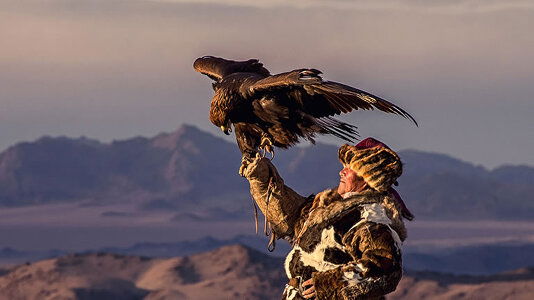
Explore Beyond trips offer once-in-a-lifetime experiences. From photography trips with professional photographers to festival tours with local experts.
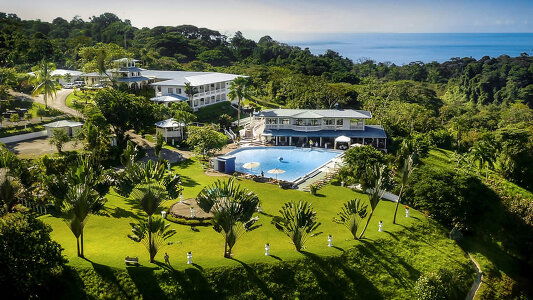
All the familiar elements of an Explore tour are included, with the benefit of enhanced stays in premium accommodation for that touch of extra comfort.
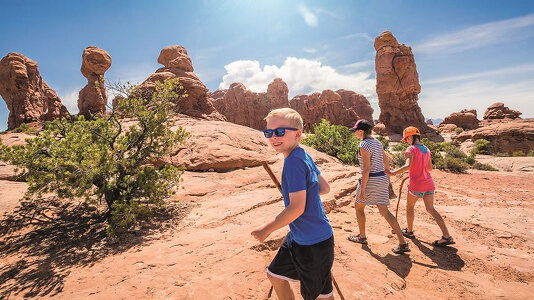
Take a small group family adventure, with experienced tour leaders who will bring destinations and activities alive for you and your children. Extended families welcome.
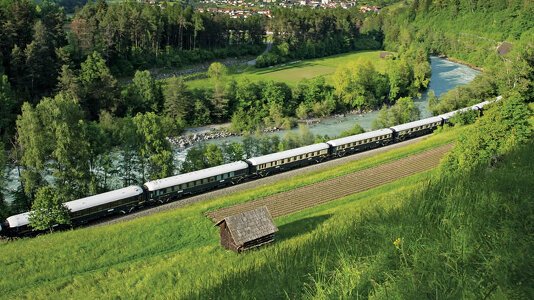
Join a rail holiday with Explore and wake up each day with somewhere new to discover. Chat with fellow passengers and soak up the ever-changing landscapes as they roll past your window.
Explore! Reviews View all
We had great variety in fitness levels which slowed us down, especially in Lisbon and Porto - both very hilly! Felix was very knowledgeable and repeatedly went the extra mile to ensure we covered everything, even arranging an additional guide for the Cordoba Mosque/Cathedral. Because Morocco requires licensed guides in each city, Boobker had less opportunity to do this. All accommodation was at least 3 star and most were 4 star. All accommodation was either in the main tourist areas or just outside - very convenient.
It became apparent that the group members had received differing information in the lead up to the trip mainly regarding bike specific info about clip in pedals, helmets etc. This was concerning as it did potentially negatively impact the trip. My one little criticism would be that others on the tour had received a ‘last minute’ email, gee-ing them up for the trip. I didn’t receive this and so flew from Australia not feeling 100% sure that the tour would happen. This was further exacerbated when we were met at the airport by a driver who didn’t speak English and holding a mis-spelt hand written sign with no mention of cycling. He also drove very fast and dangerously and was abrupt with some of the group members.
Explore Brochures Download the latest Explore brochures to read at your convenience.
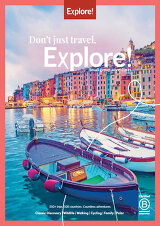
Explore Small Group Adventures (2025-26)
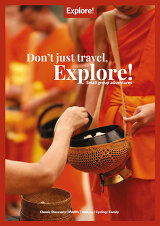
Explore Small Group Adventures (2024-25)
The Explore Tour Experience Choose to travel with Explore on your next adventure!
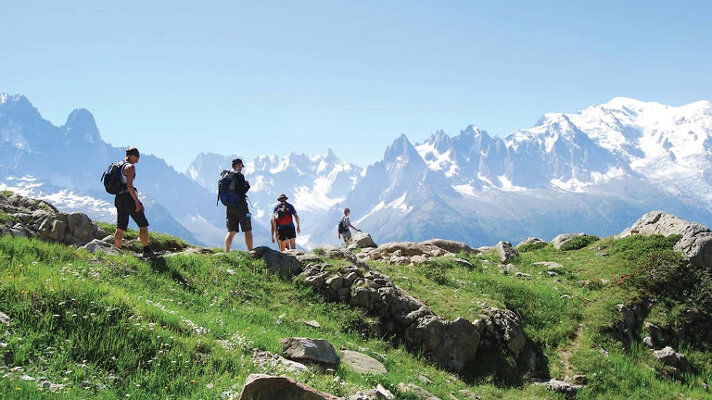
Explore offer small group adventure travel led by local guides that immerse travellers into local culture by using local transport, staying in local, family-run accommodation, and eating in local restaurants.
Operating now for over 37 years, Explore offer a range of adventure trips for first timers and experienced explorers, cyclists and walkers alike, sailing and cruising and family adventurers across the globe.
Explore understand that adventure doesn’t mean the same thing to every traveller and offer a range of paces and grades for their walking, trekking and cycling tours. So it's easy for you to choose the right balance between activity and relaxation for your next trip.
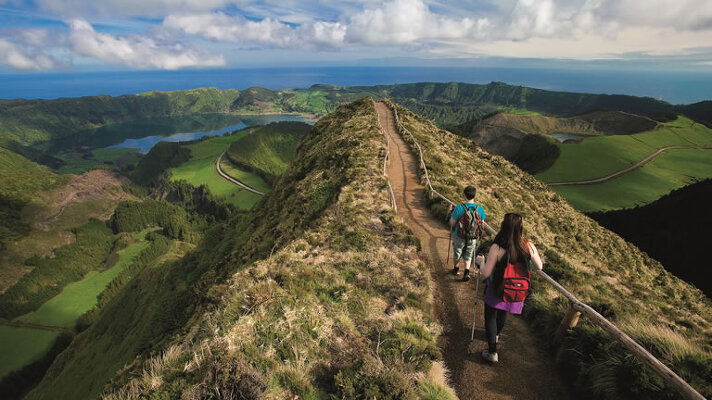
Explore Small Groups range in size from between 8 to 20 people, depending on the type of tour, activities and the destination. An indication of the minimum and maximum group size is given on each tour. Sometimes tours will run with as few as five or six people while Explore guide that the average group size is 12 people.
Travelling with a small group gives you opportunity to get to know your travellers, get further off the beaten track and to travel safely in destinations you might otherwise not explore independently or with your family.
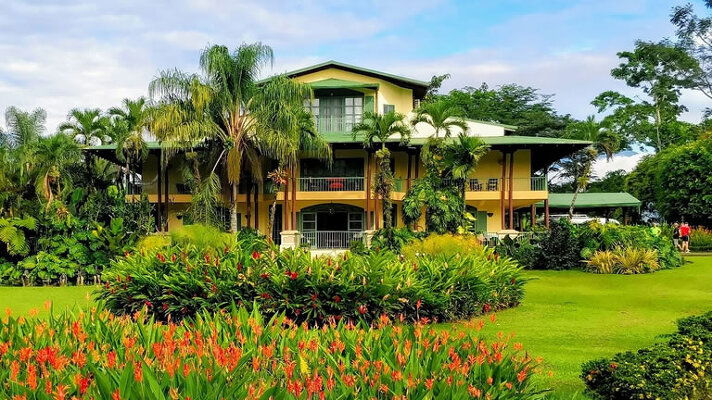
Explore make their accommodation choices to reflect the destination. Accommodation is generally mid-range, but you might also stay in simple hotels or guesthouses with basic amenities.
The level of facilities and room type might vary with each location. The key criteria is cleanliness, comfort, safety and location.
On some trips you might camp or overnight on a train or a bus. On most trips the accommodation is twin share. If you are a solo traveller, you will share with another traveller of the same sex.
If you want your own room you can pay a supplement to pre-book a single room – which will be provided if possible. On rare occasions you might need to share facilities.
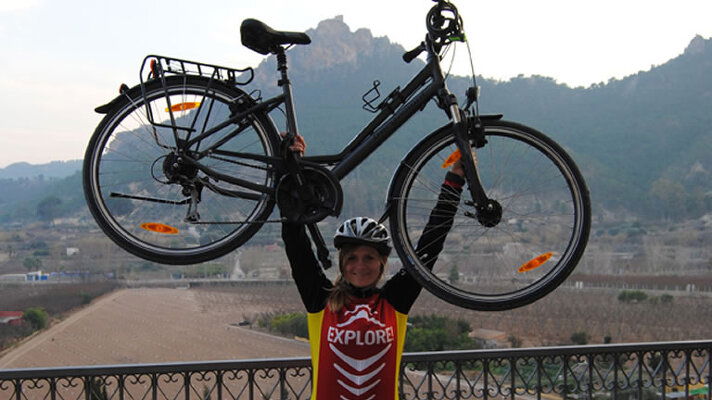
Explore Leaders travel with you to ensure your trip goes smoothly every step of the way. They manage the daily tour logistics. They help you get to the heart of a destination and culture.
Your local leader will help you understand the cultures you are travelling through, adding their local insight to your experience of each destination. They help you get the most from your trip.
Local leaders are key to the Explore ethos - by employing local leaders Explore (and you) are supporting the communities you travel through.
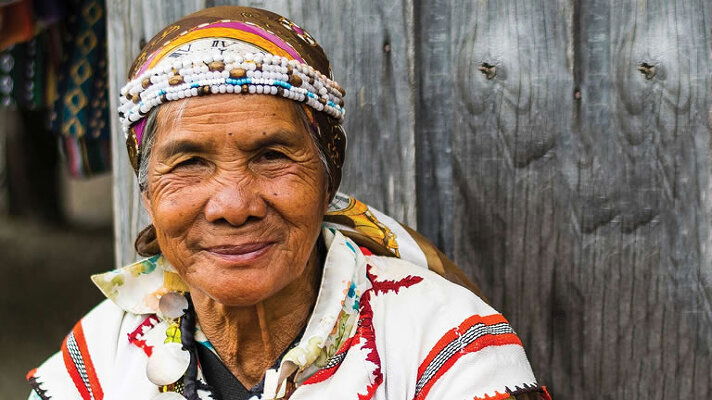
Explore care deeply about responsible, sustainable travel. Their ethos is to have a positive impact on the places and people that their tours visit.
They eat in local restaurants and stay in local, family run accommodation to ensure they support the economies of local communities.
Explore considers all transport options, including lower-carbon options such as buses, train or boat journeys, which will get you where you need to be without large impact.
They pay their local leaders a fair wage and support community based projects. Your trip cost contributes to wildlife conservation, cleaning up the world's beaches and the maintenance of well-trodden hiking trails through their partnerships with several charities around the world.
Explore More Explore more Your guide to traveling with Explore!

20 March, 2025
Discover Morocco, Your Way!Morocco: A Land of Endless Possibilities Morocco is a place that inspires you to travel in a way that feels right for you. Whether it’s the silenced desert, the vibrant souks, or the breathtaking Atlas Mountains, there’s something for everyone. The beauty of Morocco lies in the fact that...
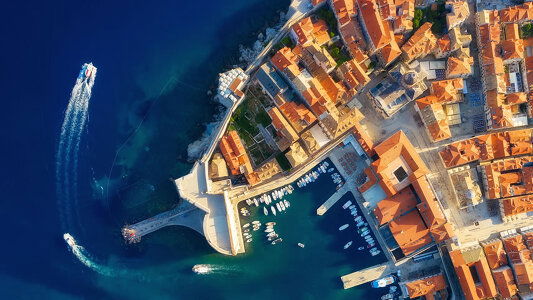
23 June, 2022
EUROPE FROM A DIFFERENT ANGLEExplore Worldwide unveils 11 new Europe trips focusing on slow travel Explore Worldwide has launched 11 brand new European adventures to their programme – trips that show off the highlights, but travel more slowly through lesser-known parts of the countries too – often by public transport,...
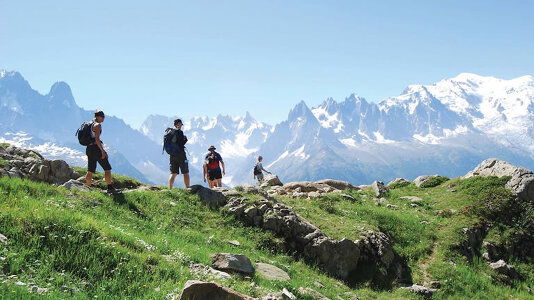
20 August, 2020
Adventure Safely on an Explore TourTo give guests confidence that they can book future travel confidently and travel safely when the time is right, Explore’s post COVID protocols are guided by the WTTC (World Travel & Tourism Council), UNWTO (World Tourism Organisation), the European Commission and local government...
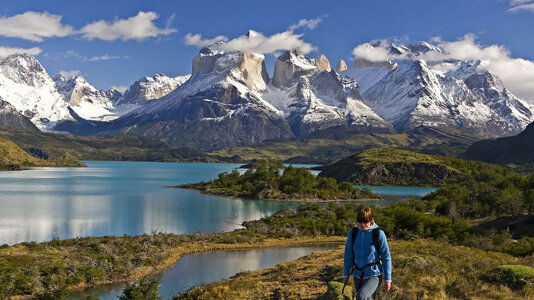
19 February, 2020
Take a Hike on one of Explore’s Five Ultimate TreksDiscover some of the world's most beautiful and remote regions when you join Explore on one of their bucket list treks. You’ll get up close and personal with magnificent scenery and local life along the way. Feel a huge sense of achievement and wonder as you pass through breathtaking terrain,...
FAQ's Frequently asked questions for those considering traveling with Explore!
Your travel companions come from a wide range of locations and backgrounds. However, because Explore only offer English-speaking trips, the majority will be from the UK, Ireland, Australia, New Zealand, Canada and the US. Everyone will share your passion for adventure travel.
Group size ranges from between 8 to 20 people, depending on the type of trip, the transport and accommodation used, and activities included. Explore rarely have groups that are smaller than six or seven people and the average is 14 people and a tour leader. Maximum numbers are provided on each of our itinerary pages.
The minimum age on all group trips is 14 and 16 where there the trip involves high altitude. A parent or adult must accompany people under the age of 18. Fitness and stamina are more important than age. Often the older customers are the fittest in the group! Please refer to the trip notes for guidance.
Everyone has slightly different expectations when they arrive on tour. A vital part of the Tour Leader’s role is to try to understand these individual expectations, and to run the tour in such a way that everyone gets the most out of their vacation.
The Tour Leader’s main responsibility is to make sure that all members of the group are well looked after and return home having had a wonderful vacation with some fantastic memories. It is the Tour Leader’s responsibility to ensure that the trip runs smoothly and that all the logistics are in place and to oversee the health and safety aspects of the trip. Tour Leaders will be as flexible as possible - within the confines of the itinerary. For example, they can arrange group meals for those that would like to eat with their travel companions.
Alternatively, if you would prefer to make your own plans they may offer suggestions for local restaurants. They will also try to make sure that everyone has as much free time during the trip as they wish.In order to keep the trips running effectively, Tour Leaders give regular briefings to talk about what is happening in the next few days, to remind you of timings and what you need to bring for excursions, sightseeing and activities.
All Tour Leaders are carefully selected and have undergone thorough training in the UK and/ or overseas – this is generally accepted to be some of the best in the industry. Tour Leaders are chosen for their travel experience, their people skills and their experience of working with groups..
Please note that a small number of trips are accompanied by local representatives. This will not affect the enjoyment of your vacation and will be outlined clearly in the individual Trip Notes.
Wherever possible, Explore try to include accommodation which best reflects the local area in which you are traveling. This could be a Berber village house in Morocco, a Bedouin camp in Wadi Rum or a safari lodge in Botswana.
Where hotels are used Explore aim for mid-range accommodation, the key requirements being cleanliness, safety, comfort and a good location. (The type of room provided, and the level of facilities may vary from place to place.) In exceptional circumstances, you might stay in simple hotels with more basic amenities.
When camping, all the necessary equipment (for example two person tents) is provided, but you are likely to need your own sleeping mats and sleeping bags. You will not have to cook. Many trips are fully staffed, but on some you may be asked to help with the camp chores. Please see Trip Notes for details. All accommodation choices are given a rating to describe standards and facilities. You can find this in the individual trip’s Trip Notes.
Most trips are based on sharing twin-bedded rooms. Individual travelers will share a room with someone of the same sex. However, on many trips the opportunity to pay a supplement to pre-book a single room is offered. On some of these trips a single room will be provided every night, on others it will be provided on some nights but for logistical reasons not all. Please refer to the Individual Trip Notes to clarify this.
Most trips include breakfast, but other meals are often not included. This allows you to try the cuisine in local restaurants and to choose what and where to eat and how much to spend.
All-inclusive accommodation is kept to a minimum. Where there is no option, such as when camping, on safari or on some boat-based trips, meals tend to be included.
Special dietary requirements are catered for where possible but in some countries, there is a limited choice of food and it may be difficult to cater for all special meal requirements. Please check the Trip Notes carefully before booking if you have any specific requirements.
The variety of transport used is another important aspect of any Explore Adventure and they use everything from buses, boats and trains to camels and donkeys. You may even find all these on the same trip.
You must have valid travel insurance to participate on an Explore Tour. You will need to confirm to your Tour Leader that you are covered by a travel insurance policy at the start of the trip. For this reason your original insurance policy must be carried with you on trip. If you have arranged your own insurance please ensure that your documentation shows you as the named policyholder and that the cover is valid for the entire period of travel. It must also indicate that you have cover for (at least) Medical Expenses and Emergency Repatriation in the event of illness or injury.
Please ensure that a 24 hour contact telephone number for your Insurance Company is written on your documentation in case of an emergency. If you are unable to provide this information at the start of the trip you will not be able to continue with Explore - unless you purchase a suitable Insurance Policy.
If you, your traveling companions, or anyone upon whom your travel depends (such as a friend or family member whose illness or death would result in you wishing to cancel or curtail your trip) has a pre-existing medical condition you must inform your travel insurance company of this when you purchase your policy.
Please ensure that you receive written confirmation from them that the condition is covered. You must take this written confirmation with you on trip, in addition to the insurance policy itself. If you don't, you may not have appropriate cover.
All Explore trips require some level of active participation. This could be on a cultural trip, trek, safari, expedition or voyage. It is in the interests of all members of the group that everyone should be capable of fully participating in the activities of their chosen trip.
If you have any medical condition or disability which may affect your trip arrangements in any way, you must provide full details at the time of booking.
Several trips reach elevations of 2500 metres or more. Time is allowed for acclimatisation and usually the body acclimatises well to spending extended periods of time above this altitude.
It is difficult to predict who is at risk from altitude sickness but if you have a heart or respiratory problem Explore advise you not to risk extended travel or trekking at high altitudes and to check with your doctor.
From time to time, some elements of the trips may change from those that have been published. This could be the result of inclement weather, a change in the local political situation or in flight or train schedules or other circumstances beyond Explore’s control.
Significant changes to your vacation will be notified as soon as is feasible. Minor amendments to your trip will be detailed on your final trip documentation, although Explore’s website will be constantly updated should you wish to check the information at any time.
Explore reserve the right to cancel departures that (in their opinion) are not viable (except for “Definite Departures” which are described below). Typically this happens when less than six or seven people have booked on a trip (the exact numbers can vary). Explore try very hard to make every departure work and only cancel when absolutely necessary.
Explore will give you as much notice of a cancellation as possible, allowing you to consider alternative trips or dates. Explore do not guarantee a minimum number of participants for each trip and may decide to operate a trip with less than the normal minimum number of people.
On these trips Explore guarantee that the advertised "Trip Only" itinerary will not be cancelled or significantly changed unless they are forced to do so by a "force majeure" (as defined in their Booking Conditions). There is no minimum group size for these departures.
This guarantee does not apply to international flights, which may be subject to change or cancellation in accordance with Explore’s Booking Conditions.
You will need a valid passport, preferably until six months past your travel date and with blank pages so that officials can stamp entry/exit details. Please check your entry and visa requirements with your nearest Irish or British embassy or consulate well in advance of your planned trip. More information on visa requirements for Ireland can be found on the Irish Department of Foreign Affairs website. For visa requirements for the UK please visit gov.uk/check-uk-visa.
The required fitness levels for Explore walking trips can vary depending on the walking vacation you choose. To help you choose a walking trip to suit your fitness level, all Explore tours have a grade listed on the itinerary page.
The grades also indicate how much preparation you may need to do before you depart for your trip. For the majority of Explore’s walking vacations, no training is needed.
Most of Explore walking trips have rest days built into the itinerary. Again, check the grade of the tour – easier graded trips are more likely to have rest days and shorter walking days. If you’re keen to have plenty of time to try local food and drink and explore the destinations in depth, go for an easier grade walking vacation.
If you feel you need an extra day to relax during your vacation, it is possible to opt out of walking. Your Explore leader will arrange transport for you if needed. You can increase your amount of ‘downtime’ by choosing an easier grade trip, which have plenty of rest time so you can rejuvenate after each day’s walking.
Also look out for Explore’s centre-based walking trips. On these vacations you’ll stay at the same accommodation throughout and take different walks each day. If you’re on one of these trips you’ll have the option to stay and do your own thing for the day if you’d like to.
A walking vacation is a great way to meet likeminded people who share your hobby. You’ll always have someone to keep you company along the route, but you don’t always have to walk together. Explore walking groups naturally split into smaller numbers, depending on their pace. Your leader will make sure you re-group when needed.
On nearly all of Explore’s walking trips your luggage will be transported for you between accommodation. Check the trip page for details of luggage transfers. We do recommend you still carry a small daypack for water, a camera, a small first aid kit and any extra clothing and sun protection you may need.
This will be up to your Explore leader. Of course, you will not walk in extreme weather, but usually a little rain won’t stop the group from continuing on! So unless the weather is really bad, it’s likely the trip will continue as normal. But you will always have a choice and can opt out if you feel you really don’t want to walk.
This will vary depending on where you decide to go. Explore provide detailed advice on the individual trip notes. The general tip for walking clothing would be to pack layers as the weather can always be unpredictable.
TA decent pair of walking boots is essential. Explore recommend getting walking boots that are a little larger than your normal shoe size, to allow for a thick pair of socks (or even liner socks and thick socks together to prevent blisters). Also, don’t take new boots on your walking vacation – try to break them in by wearing them around the house or on walks Before You Depart for your trip.
Your Explore leader will have a full first aid kit but also recommend having a small first aid kit in your daypack. Also make sure you’ve got at least one water bottle. You may want to consider a pair of trekking poles for harder graded trips.
Assessing your personal fitness is quite subjective, but we've made it as easy as possible to choose your level by giving each trip a ‘trekking pace' in the Inclusions section of each walking tour. Grades range from Easy to Moderate to Strenuous and Tough.
Explore have assessed each trek on the number of hours walking each day and the amount of ascent and descent, also taking into account factors like the terrain, altitude and likely weather conditions.
It really isn't a problem. On lots of trips (like Kilimanjaro, Nepal or the Inca Trail) you can walk at your own pace nearly all the time, as Explore have enough guides to escort walkers of all speeds.
On other treks where there aren't extra local guides Explore’s leaders are trained to manage the pace of the group carefully, to suit all walking speeds. Occasionally for safety reasons the leader might pull the group together (in bad weather or on a tricky section of the trail) but in general the group can string out and everyone finds their own comfortable walking pace.
The best way to train for a trek is to spend plenty of time beforehand simply walking. Ideally try to walk similar distances and ascents to those you'll experience on the trek itself. Aerobic training helps too, but there's no substitute for simply walking for several hours at a stretch. It's also a good opportunity to check out all your trekking equipment, clothing and footwear – to make sure it's all comfortable and works OK.
On nearly all Explore treks your luggage is transported for you from one overnight stop to the next (by vehicle, porter, mule, even camel) so all you need to carry is what you need during the day, for example water bottle, camera, extra clothing, sunscreen and a small personal first aid kit.
Explore recommend a 15 to 25 litre day pack for most trips and a slightly larger pack for the handful of treks where you need to carry gear for an overnight stay.
There's no other way to prepare for altitude than to acclimatise slowly. Explore carefully plan their trekking itineraries to allow for gradual acclimatisation once you climb above 3,000 metres. Altitude sickness can affect the fittest trekkers just as easily as the less fit. Once on the trek the main recommendation is to keep your fluid intake up and stay hydrated. As a precaution on the highest treks the support team carry emergency oxygen cylinders and a Portable Altitude Chamber (PAC).
Check the trip notes for each individual trip to see what specific equipment is recommended. The equipment list will vary according to the likely weather conditions, the trekking terrain and whether you're camping or not.
On some treks they are provided and on others they're not: please see individual trip notes for details. If using your own sleeping bag, Explore guide it is better to bring a warmer bag than you think you need: being too warm is easier than too cold.
A sleeping bag liner adds warmth too. The most effective mattresses are self-inflating air mattresses and a lightweight self-inflating pillow can also help you sleep more comfortably.
This is very much a personal preference. Some people swear by them, especially on treks with long ascents and descents, others find they get in the way and prefer to manage without. If you have weak hips, knees or ankles Explore guide that they are an effective way to reduce the strain.
Again, this depends very much on the trip. In warm weather and on easy terrain you can get away with walking shoes but more often you'll need good quality leather or Goretex walking boots with decent grip and secure ankle support.
Your boots must be fully waterproof and at higher altitudes leather boots with trekking gaiters for crossing snowfields are recommended. Check individual trip notes for details.
The rule of thumb is to wear several thin layers rather than just one or two thick layers. This allows you to peel layers off or put them on depending on the weather and the time of day.
For your base-layer choose a fabric that ‘wicks' moisture away from your skin and dries quickly. Your outer layer should be fully wind and rain proof, even if you're trekking in a normally dry climate. You will find more detailed information about what clothing to wear on individual trip notes.
This depends where you are and which trek you're doing. On most walks and treks you can replenish your bottle from clean water supplies along the way. On some remote treks the crew boil up water to purify it, on others purification tablets or filter units are recommended. Refer to the individual trip notes.
Your tour leader will carry a comprehensive first aid kit. This is intended for emergencies only, so you will need a small personal kit of your own to deal with any cuts, scrapes or blisters you may pick up along the way. The more remote your trek the more comprehensive your personal first aid kit should be.
You should aim to deal with blisters before they become a problem. Explore recommend Compeed or zinc oxide tape to prevent any rubbing or sore areas of your foot developing a blister. A worn in pair of boots shouldn't cause blisters, but this cannot always be guaranteed, especially in hot weather. Change your walking socks often and wear a thin inner sock to wick moisture away from your foot.
Every trek is different so please check the relevant trip notes for details. In remote parts of the Himalayas for example you can still recharge batteries from village electricity supplies, for a small charge.
Remember that your camera batteries run down more quickly in the extreme cold. It's a good idea to carry one or two spare batteries just in case.
On most camping based treks there is a camp crew who set up the tents for you and also take care of the cooking and clearing up. On some trips this isn't practical, and you should be prepared to put up and take down your own tent. The relevant trip notes inform if there is any participation required.
It really depends which trek you're doing. On some there are campsites with showers but more often you will be in the wild and water may be limited. Sometimes you'll have a bowl of water for washing each morning and evening, other times not even that – see individual trip notes for details.
A lightweight travel towel is useful, as is a good supply of wet wipes and hand sanitiser.
Walks that are graded as Easy are suitable for most people in good health. Easy walks are predominantly on good paths, at low altitude and on undemanding terrain. On these walking trips, you can expect to be walking for 3-5 hours a day (including rest stops) with plenty of non-walking time in the itinerary. Previous walking experience is not necessary.
This grade is ideal if you want to enjoy both easy and moderate level walks on the same tour. You’ll be walking mainly on good paths and at low altitude, with occasional more demanding ascents or descents.
Moderate graded walks are normally on good paths and tracks at low altitude (generally below 2,500m) and are suitable for fit and active people. You can expect to walk 3-7 hours a day (including rest stops). Some walks may include fairly demanding ascents and descents, so previous experience is preferable but not essential.
Combining moderate grade walks with some more strenuous hikes. This grade is ideal if you are fit and want to challenge yourself with a few longer, more demanding trekking days, possibly on difficult terrain or at higher altitudes.
Trekking days are generally long (6-8 hours), with some long, steep ascents and descents and sometimes at high altitude (over 3,000m) or on more difficult terrain. You need to have a good level of fitness and some extra training before your trip may be required; previous trekking experience is recommended.
Trekking days are long (sometimes 9 hours or more) and tough, with difficult terrain often including time at high altitude (over 3000m). You should expect some demanding ascents and descents. You will need to be physically very fit and a confident, experienced trekker.
Explore tour leaders are carefully selected and trained to manage the tour in a professional, organized and friendly way. They understand the needs of families and have an informal, approachable style which children like. Their infectious enthusiasm inspires the minds of the young explorers and brings the destination to life.
Tour leaders are trained to manage the logistics of the tour and make sure everything runs smoothly. Although they will interact with the children throughout the trip, they are not expected to provide childcare. Parents are responsible for their children during the tour.
Although parents are expected to take responsibility for their children during the tour, what tends to happen especially as the children get to know each other is that they gather together as a group while the adults relax nearby. In practice, this works really well for both children and adults.
All the tours vary: some are quite relaxed, and others are full-on. Each trip has a ‘Tour Pace’ ranking to make it easier for you to choose the right vacation for your family. Walking, cycling and multi-active tours are also graded according to their level of difficulty.
Yes, you can opt out of any activity if you like. You can normally choose either to do your own thing independently or to come along and watch the others. If your child wants to opt out of an activity a parent will need to stay with them. If unsure, please ask your Trip Advisor before you book and discuss with your Tour Leader on the tour itself.
Family groups on Explore tours are generally between 12 and 18 people, roughly half adults and half children. Travelling in a small, informal group makes it easy for any family, large or small, to fit in and quickly make friends. Single parent families and families with one child find the small group format works well. Extended families are welcome too - grandparents, uncles and aunts often join the trip. Very occasionally groups are smaller than six or seven people. On rare occasions yours may be the only family on the trip.
All the tours are different: some are designed for young children and others for teens. Explore understand that all children are different, but to make it easier for you to find the right vacation for your family they recommend an ‘ideal age’ for each tour. The ‘ideal from’ age is quite flexible but in addition there’s a minimum age which is often applied for safety reasons. The average child age on family tours is between 12 and 13.
There are tours designed specifically for families with teenagers – usually these are a bit more challenging, more active and more demanding. On other family tours Explore also designate a handful of departures for Teen families only, as they know teenagers like to travel with others their own age.
Explore use a wide range of accommodation their family vacations, from simple homestays to very comfortable hotels. Preference is to stay at smaller, locally owned hotels where possible, and on many tours use a variety of accommodation including guesthouses, wild camps, safari lodges, village houses, feluccas in Egypt and so on. Facilities vary but accommodation is clean and comfortable.
Families of two, four or six are arranged into twin rooms. If you’re a family of three or five twin and singles are arranged as necessary, or triples depending on your preference. Wherever possible families are booked into adjoining rooms, or at least into rooms close to each other, but this cannot always be guaranteed. On some tours there may be a night or two in communal sleeping areas, for example in a desert camp or a village house.
Children love to swim so nearly all the hotels Explore use have pools. There are also opportunities to swim in the sea, lakes and rivers along the way. See individual Tour Notes for details.
Safety standards on all Explore tours are carefully checked on a regular basis. All accommodation, transport and activities are checked, and all Tour Leaders are fully trained in safety management. While accidents can never be ruled out altogether Explore do their utmost to ensure the vacations are safe.
The food on family vacations is often one of the highlights, for children and adults alike. There is a preference for local restaurants that serve authentic and freshly made food. The Tour Leaders know all the best places and can usually find one with menu options to suit everyone. If your children don’t like their food too spicy it’s almost always possible to arrange milder alternatives. Vegetarians are well catered for in most countries, especially in Asia.
Accommodation, transport and most activities are included, along with some meals. As flexibility is an important part of Explore vacations, they leave some activities optional (for you to decide at the time whether or not to do them) and we often leave meals free so you can choose where and when to eat, and how much to spend. Please see individual Tour Notes to find out how much the optional activities and non-included meals will cost.
All Explore tours have lower prices for children aged 11 or less. The main saving is on the international flight, which unfortunately reverts to the adult fare from age 12. Please see tour Dates and Prices for details.
No. Explore offer a 100% price guarantee which ensures that once your booking is confirmed the price won’t change, regardless of fuel surcharges, foreign exchange rate changes, increases in government taxes or for any other reason.
Explore tours are available to be booked eleven months before they operate (as this is the point when airlines confirm their schedules and their fares) and you can book any time after that.
Explore guide that most families book at least four to six months beforehand, to ensure they get the tour and date of their choice. Easter, Christmas and half-term weeks are often in demand, as sometimes it’s only possible to run one departure over these periods. If you’re booking late check the Dates and Prices pages to see which tours are still available. Note that some tours become more expensive the later you book, as flight prices increase.
Yes, you can ask your Global Journeys Travel Advisor to check with Explore about the other families booked on a tour. Explore can tell you the approximate ages and the gender of the other children booked.
Explore does guide that it’s surprising how little the age and gender differences matter when a family group travels together, but it is comforting for children to know there are others their own age in the group, especially before the tour starts.
Small group tours, usually with 12 to 18 children and adults traveling together through a destination and centre-based vacations, where you are based in one place and enjoy all the activities in the surrounding area.
All customers that travel on an Explore Group trip will be provided with a complimentary transfer, provided they arrive and depart into the designated airport or train station on the trip start and end dates. This is a great way to start your travels, offering you that little extra peace of mind and comfort in the knowledge that there will be someone at the airport or station waiting to take you to your first nights’ accommodation.
The transfer is available to anyone that has booked on to a Explore group or private journey trip on the condition that the flight or train arrives and departs into the designated airport or train station on the day the trip starts and ends.
The exceptions to this rule are customers who have booked on a trip where the joining and ending point is the airport or station. In this case, there will be a specific time provided for when the trip starts and ends. On these particular trips, only one arrival and departure transfer will generally be provided for the whole group. Please ensure that your travel arrangements coincide with these transfers in order for you to meet up with the Explore leader and the rest of the group. Free transfers are not available for Self-Guided or Polar Voyages customers.
Transfers are from the Explore designated airport or train station to the joining point of the trip, and then back from the ending point to the designated airport or train station. Generally, the airport or station that Explore have selected will be the one that is closest to the town or city where the trip starts, or the one nearest to the joining point. It will be either an airport or train station but not both.
You can find more information regarding the joining information for your particular trip online, under the dates and prices section for your trip. Please ask for more information regarding the designated airport or train station at the time of booking.
Explore arrange transfers through their local ground agents. They are exclusive to Explore, but you are likely to be sharing with other Explore customers arriving at a similar time. You’ll be met in the arrivals area of the airport or train station by a driver or local representative carrying an Explore sticker or card with your name on.
You may have to wait for a while until others make their way through to the arrivals hall. If this is the case, the driver or representative will ensure that you have somewhere comfortable to wait, perhaps a café or other seated area. You may be lucky and end up in your own private car, however this cannot be guaranteed, and most included transfers are shared and use chartered minibuses or other similar vehicles.
Explore offers private transfers on a majority of trips at an additional cost. Please ask for a quote at the time of booking, should this be your preference. If you are eligible for the free transfer but do not need it or want it, then please be aware that we will be unable to refund you for this unused service.
In order for Explore to arrange the free transfer you must provide us with your arrival and departure flight/train journey details. Until you provide this information you will not have a confirmed transfer. We ask that your information reaches us no later than 14 days before you trip starts, or we’ll be unable to arrange any transfers for you.
On arrival at your overseas airport you should clear immigration, collect your luggage and make your way through customs to the exit. An Explore representative will be waiting for you in the public waiting area and will either be carrying a red and white Explore sign or one with your name on. Please look out for the representative as it will be easier for you to spot them in a crowded area, than for them to spot you.
Terms & Conditions All the boring small print. We recommend you read them, as no one likes surprises!
- Please read Explore! Terms & Conditions
- Please also read Global Journeys' Terms & Conditions if you haven't already.

